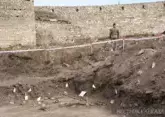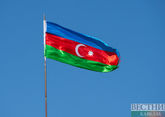Last week's desire to recognize Nagorno-Karabakh at the international level, voiced by Prime Minister of Armenia Nikol Pashinyan, can't be achieved. Obviously, after studying the Karabakh issue, directly responsible for strained interethnic relations between Armenians and Azerbaijanis, Pashinyan will have to change his own rhetoric.
Pashinyan's rhetoric hasn't radically changed since last escalation of situation in April of 2016. Previously, politician said that Armenia shouldn't fully adhere to the ceasefire agreement, but after he became Prime Minister he adjusted his position, making it more uncertain. Nevertheless, Pashinyan's desire to "overcome stereotypes" implies desire to approve Nagorno-Karabakh as a participant in the negotiation process. He wants to avoid direct confrontation between Armenia and Azerbaijan this way.
Nikol Pashinyan is a man of new political formation, not affiliated with the Karabakh clan. But he can't ignore the fact that current Armenia exists as a result of many years of leadership of the former political elite, whose legacy has affected national identity. Statements about liberation of occupied territories, as well as demonstration of loyalty to leadership of Azerbaijan are akin to political suicide for Pashinyan. He also worries about his own popularity level, thanks to which Pashinyan managed to ascend to the political Olympus of Armenia.
Current Armenia pursues policy of maintaining status quo on the Karabakh issue and is not ready to accept proposals that will lead to liberation of occupied territories. Accordingly, we shouldn't expect any changes in the format of the Karabakh issue settlement in the next six months or a year.
It's also necessary to remember about personnel issue, since it's obvious that Pashinyan's team has no one who could represent Armenia's foreign policy. Taking into account foreign policy realities of the republic, where the Karabakh issue is very important, in the near future Pashinyan should find politicians who will be able to take this responsibility and represent Yerevan at the talks on the Karabakh settlement, although changes in the negotiation process format are unlikely to happen.
What Pashinyan expects? "People's" Prime Minister, whose political success came largely as a result of support from population of the republic through numerous protests and demonstrations, needs support of leadership of the self-proclaimed Nagorno-Karabakh Republic. If in the Sargsyan era, the power of political elite of the self-proclaimed republic was more conditional, today it has a real opportunity to act more independently, and Pashinyan expects this, so right now he has a priority to clarify relations with Russia. It will take time for new leadership of the republic to begin to take actions to confirm previously stated desire to maintain close economic and military cooperation with its primary partner. It's no coincidence that on May 8, even before becoming a Prime Minister, Pashinyan described deepening of relations between Russia and Armenia, which "must be based on friendship and equality," as one of his main tasks.
However, Azerbaijan won't allow representatives of Nagorno-Karabakh to participate in negotiations, and rightfully so, since during the entire period of Robert Kocharian's and Serzh Sargsyan's presidency, border between political space between Armenia and Karabakh was formal. Accordingly, if Baku will establish dialogue with Karabakh Armenians regarding their status, it will only be after withdrawal of the Armenian armed forces from the occupied territories of Azerbaijan. It's also important to take into account the fact that Nagorno-Karabakh is not a universally recognized side of the conflict, therefore it can't legitimately participate. So it would be absurd to discuss role of a third party, which legally doesn't exist. In case representatives of the Armenian community of the Nagorno-Karabakh Autonomous Region will participate, participation of the Azerbaijani community of the former autonomy would be fair.
Despite his desire to save his own popularity, Pashinyan will refrain from unilateral recognition of "independence" of Nagorno-Karabakh, realizing probable diplomatic consequences. In the era of an active international sanctions policy, Armenia remains extremely vulnerable. Destabilization of the situation around Karabakh will somehow affect interests of Russia, on which Armenia depends when it comes to the field of security. It's obvious that the future vector of Armenia's foreign policy development should be guided by desire to establish favorable international relations in the Transcaucasian region, where a qualitative change of the established paradigm is possible only after Armenia's reconciliation with Azerbaijan and Turkey.










